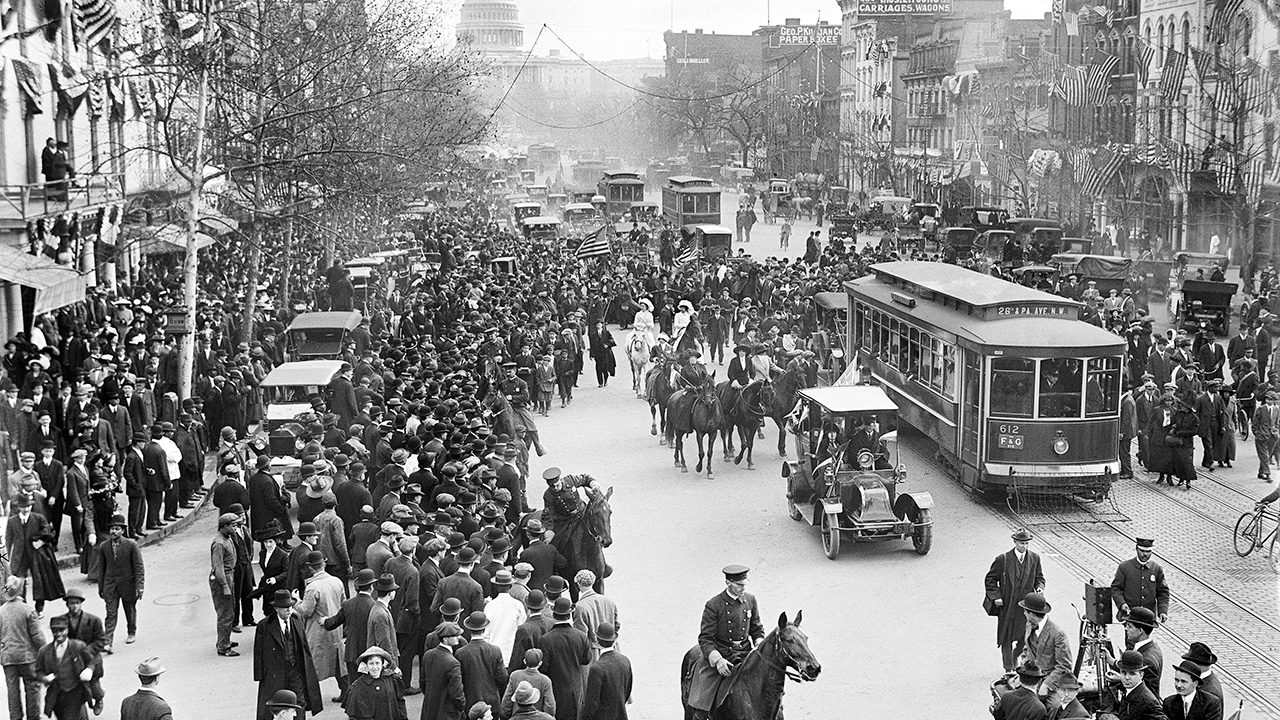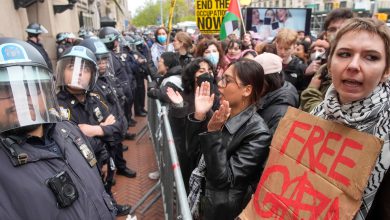
Texas has upped its fight to make a controversial new law — which would allow local authorities to arrest and detain migrants — enforceable.
The law has been the subject of an ongoing legal battle, with the United States Supreme Court briefly allowing it to go into effect on Tuesday.
But a lower court blocked its implementation hours afterwards, amid ongoing challenges over the law’s constitutionality. That court heard further arguments on Wednesday weighing the pause.
As Texas’s Republican-led government doubles down, pledging to defend the law in any legal battle, civil rights advocates have likewise promised to do everything in their power to stop it from taking effect.
They warn, however, that the law and its uncertain fate only add to the confusion and fear surrounding immigration in the US.
“Our community has endured a legal and emotional roller coaster, and this anti-immigrant law [is] very extremist, probably the harshest we’ve ever seen in the country,” said Christine Bolanos, a representative from the Texas-based Workers Defense Project, which represents migrant labourers.
“We do know that we’re in limbo, and we’re doing our best to continue keeping our community updated and fighting alongside our partners and allies.”
The law — known as Texas Senate Bill 4 or SB4 — was originally signed by Republican Texas Governor Greg Abbott in December.
But it has since faced legal challenges from rights groups like the American Civil Liberties Union (ACLU) and the administration of President Joe Biden, who have maintained it violates the US Constitution.
They argue that the federal government has the sole authority to set and enforce immigration policy.
But for community groups like the Workers Defense Project — which is not part of the current lawsuit — SB4 raises the spectre of racial profiling and other abuses of power on the part of law enforcement.
Bolanos told Al Jazeera there is still work to be done to arm migrants and asylum seekers with information so that they can navigate the uncertainty surrounding SB4.
“The vast majority of our members are migrant workers fleeing violence and other injustice in Latin America, only to find themselves confronting measures like this,” Bolanos said.
She explained that her organisation works to ensure migrants and asylum seekers “understand their rights, regardless of their legal status”. The group also offers tips about “how to act if and when an officer approaches” someone about their immigration status.
“We’ve also started working on what’s called a ‘dignity plan’. That includes an emergency checklist for them to make sure that our members have everything in order to prepare for the worst,” Bolanos said.
“If they’re facing the threat of deportation, do they have their child’s passport? Who can pick up their kids from school other than them? Who has the authority to enter their house?”
“These are things that anyone who is undocumented in Texas needs to be thinking about,” she added.
‘A huge fear’
The Texas law would empower state and local authorities to detain people suspected of having crossed into the US from Mexico outside of legal ports of entry.
Those without legal documentation could face up to 20 years in prison, but the law allows them to avoid prosecution if they agree to be deported to Mexico, regardless of their country of origin.
Mexico’s government has condemned the law as “inhumane” and has said the country will not accept migrants and asylum seekers deported by Texas.
On Wednesday, Mexican President Andres Manuel Lopez Obrador also called SB4 a violation of international law.
Rights advocates say the law is the state’s most draconian yet. It comes as part of a slate of state legislation aimed at curbing an influx of migrants and asylum seekers at the border.
Some of that legislation comes under the auspices of Operation Lone Star, a $12bn initiative that has seen state authorities plant razor wire along the border, build a floating fence in the Rio Grande, and surge members of the Texas National Guard to the area.
However, critics have highlighted a particular danger of heightened racial profiling under SB4.
Texas is already a “minority-majority” state, where ethnic and racial minorities outnumber the white population. An estimated 42 percent of Texans identify as Latino, 10 percent are African American and another 5 percent are Asian American.
While the fight continues in court to uphold SB4, Texas continues to arrest illegal immigrants for criminal trespass.
More than 41,000 criminal arrests have been made.
We continue to build border wall, use NG to erect razor wire to repel migrants & keep buoy barriers in river.
— Greg Abbott (@GregAbbott_TX) March 20, 2024
Those communities are expected to face the brunt of the law, according to Domingo Garcia, the national president of the League of United Latin American Citizens (LULAC).
Such a law could wreak particular havoc in communities with “mixed” families composed of US citizens and undocumented members, he explained.
“There is a huge fear that a father can go to work one day, get stopped by police, then be detained and deported,” Garcia said. “His children might come home to an empty home.”
Like the Workers Defense Project, LULAC is leveraging its resources to reach those most at risk in Texas.
The organisation is launching a “very massive communications program” with ads on Spanish-language TV channels like Univision and Telemundo, as well as through social media and WhatsApp.
“We’re also talking with the evangelical churches that are very supportive of our efforts, as well as the Catholic Church bishops,” Garcia said.
“And we’re having town hall meetings with local elected officials, including members of law enforcement who are against this law because they believe it will take away resources and officers and jail space from real criminals.”
‘Frankly, it’s pretty nuts’
LULAC and other organisations organised a similar public awareness campaign in response to a 2010 Arizona immigration law known as SB 1070.
That law made it a state crime for undocumented people to reside and work in the US. It also allowed for the arrest of those suspected of being in the country without legal approval and required local law enforcement to probe the immigration status of individuals stopped by police.
A challenge to Arizona’s SB 1070 eventually made it to the US Supreme Court. The majority ruled that the federal government had “broad, undoubted power over immigration and alien status” — reaffirming its sole authority over the issue.
The Supreme Court has not, however, ruled on the merits of Texas’s SB4.
But critics see SB4 as more extreme than the 2010 Arizona law. Emma Winger, the deputy legal director at the American Immigration Council, believes SB4 could eventually wind its way to the Supreme Court, where a ruling upholding the law could be transformational.
Winger explained the odds are slim that the court would uphold the law in its entirety, as there is little precedent for its constitutionality.
Still, Winger added, the court’s conservative majority could render a surprise decision: “I wouldn’t put anything past this Supreme Court. They’ve shown themselves quite willing to overrule past precedent.”
If it is ultimately upheld, the Texas law would almost certainly be mirrored in other states, including those far from the border, Winger said.
She pointed to a bill recently passed in the Iowa state legislature that would also allow state authorities to arrest and deport migrants for being in the country without legal status.
“[The Texas law] creates these sort of independent parallel and conflicting immigration systems that run at the same time, without the supervision or permission or oversight of the federal government,” Winger told Al Jazeera. “Frankly, it’s pretty nuts.”
“And we also have the potential for a real sort of diplomatic crisis — a situation where the state of Texas is in a standoff with the federal government of Mexico and interfering with what is a very complicated and important federal relationship of the United States.”
‘Stake through the Statue of Liberty’
While the legality of SB4 is debated in court, it still can have an effect on the everyday lives of migrants and asylum seekers, said Bolanos of the Workers Defense Project.
“The discussion at the dinner table in their homes right now is whether or not they need to take immediate action,” she explained, “whether or not they need to move out of Texas.”
“Beyond the sentiment of being in limbo, of frustration, deep disappointment, demoralisation, I think it’s also just extreme shock and disappointment in how ignorant and hateful and divisive our current system really is,” she said.
LULAC’s Garcia added the current legal fight embodies a larger question of US values.
If the law were allowed to stand, it would be a “stake through the Statue of Liberty and what America stands for as a country of immigrants,” he said.
“It would say that the fear mongers and the hate mongers are winning at a national level and taking us into a dark page of American history.”



